For a young engineer, time in the field is an opportunity to gain valuable hands-on experience
Source: Forbes – Mariners learn a lot from their experiences in the field that can’t be taught. The same is true for engineers, and having done both jobs, I appreciate the importance and value of hands-on experience.
Our increasingly connected world means today’s engineers can operate from an office with a world of information at their fingertips. But direct experience is a valuable learning tool. I advise young engineers to leave their desks, speak to customers and spend time getting to know the inner workings of the engineering projects they encounter. Fieldwork is a richly rewarding experience.
As a child, I was always playing with Lego building blocks. I loved putting them together to see how they fit, which explains why a career in engineering was an appropriate path for me.
My father was a harbor pilot at the Port of Boston, and I shared his love of the sea. I used to spend hours building round-bottomed tugboats out of square plastic blocks, which is an engineering challenge in itself.
My upbringing on the ocean influenced my decision to study at the United States Merchant Marine Academy in Kings Point, New York. While my family expected me to follow in Dad’s footsteps, I decided on a different course and chose to become a licensed power plant engineer.
Everything pointed to spending a life at sea, yet my career path was actually laid on solid ground. My first job was working as a field engineer with marine and industrial gas turbines. It was an opportunity to join a large company and work with my hands to learn about gas turbines; this proved to be a pivotal decision for the future.
I sensed back then that the path to success started with getting my fingernails dirty, so to speak, and I was excited about the prospect of doing fieldwork. But it was much later that I appreciated the true value of those early experiences operating power plants, connecting the theoretical side of engineering and design with its practical application to real-world projects.
…




